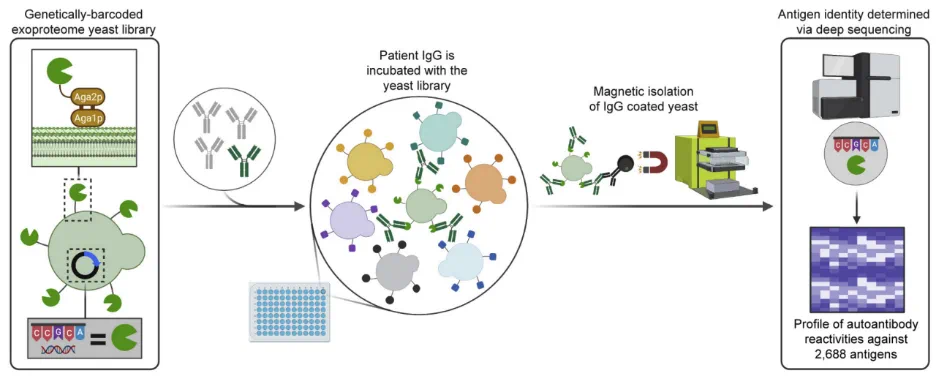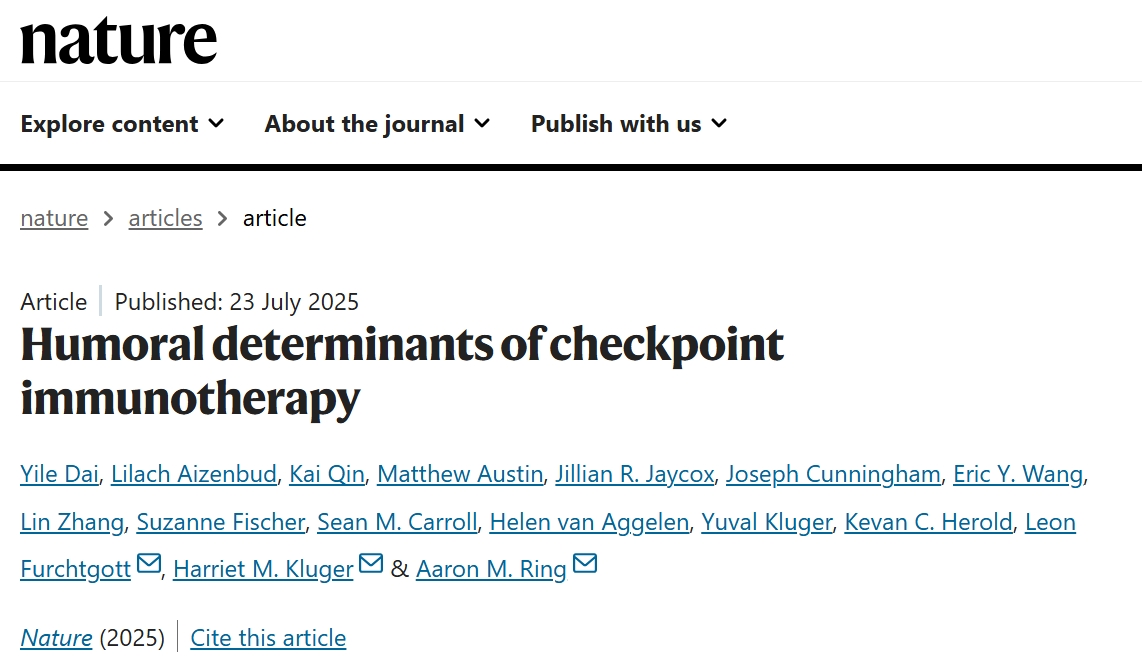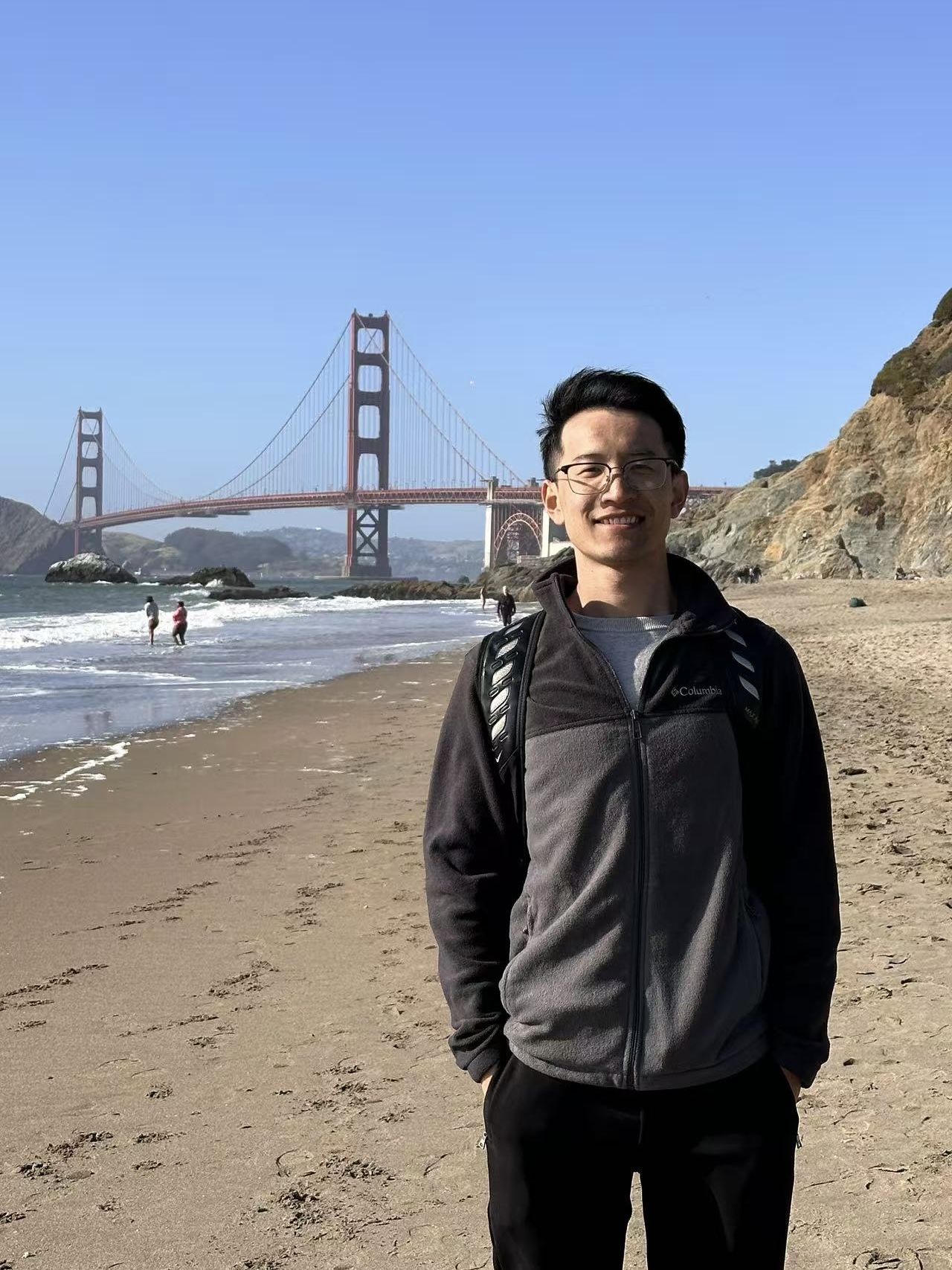Recently, Dai Yile, a Zhiyuan Life Science graduate (Class of 2018) and a Yale doctoral student, has published a breakthrough study as the first author in the top journal Nature, systematically revealing the regulatory role of autoantibodies on the efficacy of cancer immunotherapy. The team provided a brand-new explanation for the individualized differences in cancer immunotherapy through large-scale exosome proteome analysis. This discovery not only provides a new explanation for the differences in clinical efficacy, but also offers reference opinions for clinical trials of immunotherapy combined with other targets.

Concept map of the method for this study
Although immune checkpoint blockade therapies (such as PD-1/CTLA4 inhibitors) have revolutionized cancer treatment, the response rates of patients vary greatly. Dr. Dai Yile's team analyzed 6,172 exoprotein autoantibodies from 374 patients and 131 healthy individuals through REAP technology and found that the "autoantibody response group" of cancer patients was highly diverse and significantly different from that of healthy people. The "double-edged sword" effect of antibodies: Synergistic antibodies: Patients carrying anti-interferon (IFN-I) antibodies are 40 times more likely to respond to treatment. Anti-tl1a antibodies enhance therapeutic efficacy by inhibiting T-cell apoptosis in the tumor microenvironment. Drug resistance barrier: Approximately 10% of non-responders have antibodies against the BMP receptor pathway in their bodies, and these antibodies may directly hinder the success of treatment. Research suggests that in the future, the effect of immunotherapy can be further enhanced by designing drugs that simulate beneficial antibodies (such as anti-IFN-I, TL1A).

The thesis links: https://www.nature.com/articles/s41586-025-09188-4
Dai Yile demonstrated a strong interest in life sciences and research potential during his undergraduate years. When he first studied at SJTU, he already set a clear scientific research aspiration - to promote the development of medicine through basic research. In the training system of Zhiyuan College, Dai Yile received all-round academic refinement: the cutting-edge curriculum design constructed a systematic knowledge framework for him, the top mentors' personal example cultivated his research literacy, and the rigorous training of critical thinking shaped his ability to think independently. In addition, the international platform and interdisciplinary training model created by the college not only consolidated his professional foundation but also broadened his academic horizons, laying a solid foundation for his future research in top international laboratories.

During his undergraduate years, Dai Yile conducted systematic scientific research training in multiple laboratories. In his sophomore year, he went to Professor Feng Gensheng's research group at University of California, San Diego for a summer study, marking his first foray into scientific research practice. In my junior year, Professor Su Bing's team at the Shanghai Institute of Immunology delved deeply into the field of immunology. In my senior year, I completed my graduation project under the guidance of Professor David Schatz at Yale University, further focusing on the cutting-edge issues in immunology. "Zhiyuan College was the starting point of my research career," Dai Yile recalled. "Here, I learned how to think independently and how to integrate knowledge from different fields." The academic atmosphere of the college and the meticulous guidance of my mentors have enabled me to dare to take on complex problems. He also expressed his special gratitude to the dedicated teachers and friends at Zhiyuan College: "Professor He Shigang and all the course instructors not only imparted knowledge to me, but also taught me how to deal with setbacks in scientific research." Inspiring and growing together with like-minded classmates is the most precious gain during the study period. This strong academic atmosphere and teamwork spirit became an important support for him on his future research path.
After graduating from his undergraduate program, Dai Yilei went to Yale University to pursue a doctoral degree in immunology under the guidance of Professors Aaron Ring and Noah Palm, and was supported by the Gruber Fellowship, focusing on the exploration of immune regulatory mechanisms. In his research, he has always adhered to rigor and enthusiasm. He not only devotes every effort to scientific researches but also regards failure as the norm and takes it in stride, enjoying the sense of achievement brought by breakthroughs.
